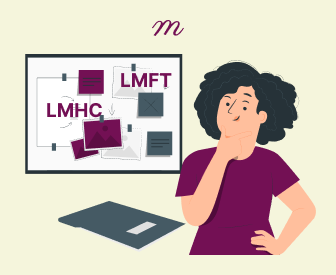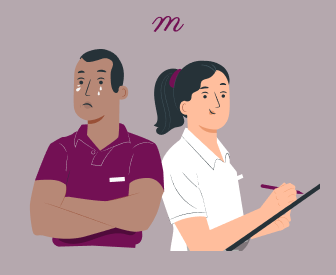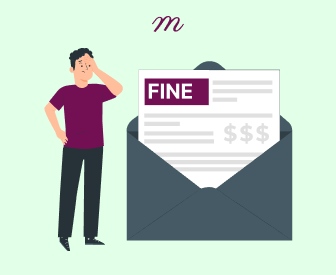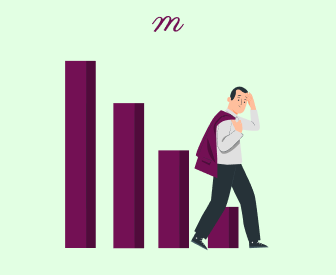Have your progress notes written for you automatically
Can you be double licensed in LMHC and LMFT?
By: Silvi Saxena, MBA, MSW, LSW, CCTP, OSW-C
Providers can be licensed as a Licensed Mental Health Counselor (LMHC) and a Licensed Marriage and Family Therapist (LMFT). There can be many advantages to this however it comes with additional work to maintain both credentials. Working with professionals who have done this before, collaborating with mental health law experts and your state board is a great way to learn more about what being dual-licensed entails. There are many individuals who do operate in this capacity and are able to manage this well and serve the needs of all the clients they see.
There are many clinical credentials for counseling and therapy and multiple pathways to get licensed as a provider. Many usually have one of the following: LPC, LMHC, LCSW, PhD/PsyD, or an LMFT. Getting double licensed as a LMHC and an LMFT is an option for those who are looking to be more marketable and gain access into providing care in other states. Each state has their own process for each license, so it is important to be aware of the process and guidelines for practice in your state for each credential you hold.
LMHC scope of practice:
A Licensed Mental Health Counselor (LMHC) usually works with individuals with a wide variety of mental health issues. They tend to focus on specific behaviors associated with mental health conditions and tend to work in rehab centers, residential mental health treatment centers, individually in outpatient centers, schools and other social service agencies. LMHCs can assess, come up with treatment plans and collaborate with other providers as needed. To become a LMHC, one must complete a masters degree in counseling (Klein and Beeson, 2022).
LMFT scope of practice:
A Licensed Marriage and Family Therapist (LMFT) usually works with couples and families and treat mental health issues, behaviors and other issues that may come up in the system they are in. They also work with individuals and their lens tends to focus on relationships. They use a variety of therapy approaches such as CBT, DBT, IFS and Play therapy to help the family system or couple. LMFTs tend to work in private practices, outpatient clinics and psychiatric hospitals. To become a LMFT, one must complete a masters degree in marriage and family therapy (Muhammad, 2023).
Dual-licensing explained:
Dual-licensing is when a provider has two separate clinical licenses in a similar field, such as a Licensed Mental Health Counselor and a Licensed Marriage and Family Therapist. These providers don’t need to have both credentials to practice, however if they have both licenses, it is important to consider the ethical implications of which credential they are using.
Expectations for maintaining dual-licenses:
Providers must maintain continuing education hours for each license and as independent providers, likely will be required to have malpractice insurance for both licensures. Each license comes with their own set of required education hours, supervision hours, examinations and fees. It is important to consider that each state will have their own expectations as well for maintaining both credentials. It is important to check with your state board to ensure you are upholding the license requirements for each credential you have.
For many of these licenses, continuing education credits can be used for both licenses. For example, a 3 hour ethics credit can be used for both LMHC and LMFT credentials in some states. It is important to check your continuing education certificate to ensure that the provider for the education is approved by the state board for each license (Bell and Katz, 2021).
Challenges of dual-licensing:
Being dual-licensed is achievable, however it can be challenging to keep up with all the credits and requirements that each licensees needs. The time of renewal may vary for each license and the cost of renewal fees, malpractice insurance and continuing education can add up. To add, depending on your state, your hours may count towards both licenses, or you may need to complete both sets of hours for each license one after the other. Both licenses, despite being a similar scope of practice, have their own unique nuances and it is important that providers are educated on the most current approaches for both the LMHC and LMFT licenses (Bell and Katz, 2021).
Ethical considerations of dual-licensing:
In practice, it can also become a challenge to explain which license you are using and with which clients. Since there is a significant amount of overlap between these two licenses, it can cause confusion to the client to know what to expect, so having clear goals of treatment is important. It is also critical to be clear in how you bill and which credential is the primary service that you are billing for. This must align with the treatment plan focus and the types of interventions happening in sessions (Still, Muller & Trachsel, 2020).
Ensuring that all your intake paperwork includes disclosures for all your licenses and clarity for what kind of service your clients are getting helps to ensure they have informed consent and can submit claims to their insurance as well. If you are credentialed with insurance as an LMFT, for example, and not an LMHC, it is important to ensure all your paperwork and consents include information on your in-network status and out-of-network status. To add, considering affordability of your services and creating a sliding scale structure can help you be more inclusive, especially if clients are coming to you for one credential over the other, for example, seeking a LMFT for couples therapy (Chenneville and Schwartz-Mette, 2020).
When you are dual-licensed, it is important to remember that you must uphold two sets of ethical standards and codes of conduct. It is important to not solicit clients for one specific credential for financial gain and working with a malpractice attorney can be a good way to learn how to set up your practice as a dual-licensed provider to ensure you are practicing ethically.
Cross-state dual-licensing:
For those who are looking to practice in multiple states, you will have to check to see the transferability for each license and ensure your malpractice insurance covers multiple states. To begin providing services in multiple states, you will first need to hold an independent credential in at least one state. Once you have this, you can begin to apply for licensure in other states.
Some licenses may begin to offer compact licenses however check with your state board to learn if your state is a compact state for that license. Some states may offer a temporary license quickly to support treatment goals for clients, however this regulation varies by state.
The benefits of cross-state licensing or dual-licensing can help you reach more clients who need services. Given the influx of mental health concerns over the last few years and through the pandemic, mental health access has been challenging for many. Becoming a cross-state, dual-licensed clinician can help meet critical population needs. Many individuals who consider cross-state, dual-licensing often provide therapy on online platforms or utilize a secured teletherapy forum. These platforms often have a lot of legal framework already set up to ensure you are providing care in the appropriate way. Beginning with one of these platforms can be a great way for clinicians to learn more about the business end of managing this kind of practice (Lin, Stone & Anderson, 2024).
References:
Bell, D. L., & Katz, M. H. (2021). Modernize medical licensing, and credentialing, too—lessons from the COVID-19 pandemic. JAMA Internal Medicine, 181(3), 312-315.
Chenneville, T., & Schwartz-Mette, R. (2020). Ethical considerations for psychologists in the time of COVID-19. American Psychologist, 75(5), 644.
Klein, J. L., & Beeson, E. T. (2022). An exploration of clinical mental health counselors’ attitudes toward professional identity and interprofessionalism. Journal of Mental Health Counseling, 44(1), 68-81.
Lin, T., Stone, S. J., & Anderson, T. (2024). A head start in the long race: Therapists are learning to adapt their therapeutic skills within teletherapy. Professional Psychology: Research and Practice.
Muhammad, K. (2023). Expanding the Scope of Competence for Marriage and Family Therapists: An MFT’s User Guide for Consulting With Project Teams (Doctoral dissertation, Northcentral University).
Stoll, J., Müller, J. A., & Trachsel, M. (2020). Ethical issues in online psychotherapy: A narrative review. Frontiers in psychiatry, 10, 498439.










